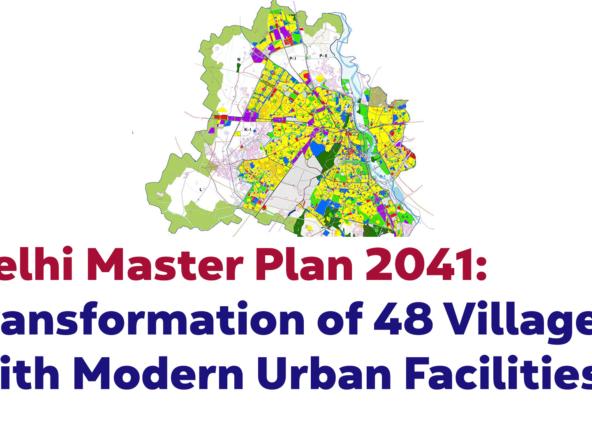What is RERA
The Real Estate (Regulation and Development) Act, or RERA, is a law passed by the Indian government in 2016 to regulate and promote the real estate industry in India. The law aims to protect the interests of home buyers and promote fair play in real estate transactions. RERA requires all real estate developers to register their projects with the regulatory authority and provide detailed information about the project, including the cost, size, and amenities, to prospective buyers. It also establishes a mechanism for resolving disputes between buyers and developers and establishes penalties for non-compliance with the law. This helps buyers to make informed decisions and have a clear and transparent buying process.
How RERA is provided
RERA is provided by the central and state governments in India through the Real Estate Regulatory Authority (RERA) at the state level. RERA is responsible for enforcing the provisions of the Real Estate (Regulation and Development) Act, 2016, and ensuring that developers comply with the law. The regulatory authority is responsible for registering real estate projects, approving and publishing project details, and monitoring compliance with the law. It also handles complaints and disputes between buyers and developers and can impose penalties for non-compliance. RERA works closely with other government agencies, including the Ministry of Housing and Urban Affairs, to ensure that the real estate industry operates in a fair, transparent, and efficient manner.
How RERA certifies Property

RERA certifies a property by registering it with the Real Estate Regulatory Authority (RERA) at the state level. To register a property, a developer must submit an application to RERA along with the required documents, such as the building plan, land title, and details about the project, including cost, size, and amenities. RERA verifies the information provided by the developer and approves the registration if the project meets the requirements of the Real Estate (Regulation and Development) Act, 2016. Once a project is registered, RERA publishes the details of the project on its website for public viewing. This helps buyers to make informed decisions about the property.
Additionally, RERA also does regular inspections of the project, to check the progress of the construction and ensure that the developer is adhering to the building plan, safety measures, and other norms as per RERA act. And once the construction is completed and the developer has fulfilled all the necessary conditions, RERA issues the certificate of completion and occupation. This certificate is proof that the property has been built as per the RERA norms and is ready for occupation.
How RERA Protects Buyers’ money
RERA protects buyers’ money by requiring developers to deposit a certain percentage of the project cost in a separate bank account, known as an escrow account. This money can only be used for the construction and development of the project and can be withdrawn only after obtaining the necessary approvals and clearances from the appropriate authorities. This ensures that the developer uses the money collected from buyers only for the purpose of completing the project and not for any other purpose.
Additionally, RERA also ensures that the developer has to disclose the details of the project cost, the schedule of payments, and the completion date of the project, which helps buyers to plan their finances accordingly.
RERA also has a mechanism for dispute resolution, where buyers can file complaints against the developer if they are not satisfied with the project or if the developer is not adhering to the terms of the contract. RERA can take action against the developer, including imposing penalties and canceling the registration of the project if necessary.
In case the developer defaults or is unable to complete the project RERA also enables a provision for an alternative developer to be appointed to complete the project, hence protecting the buyers’ interest.
Real Estate Regulation and Development Act (RERA) is legislation passed by the Indian government in 2016 to regulate the real estate sector in India. The main objective of RERA is to protect the interests of home buyers and bring transparency and accountability to the Indian real estate sector.
The key features of RERA include:
Registration of all ongoing and new real estate projects with the state-level regulatory authority, known as the Real Estate Regulatory Authority (RERA).
Developers are required to disclose all details of the project including the layout plan, land status, and schedule of completion on the RERA website.
Developers are also required to maintain a 70% escrow account for the project, to ensure that the funds raised from buyers are used only for the specific project.
Home buyers have the right to file complaints with RERA in case of any delay in possession or violation of the terms of the agreement.
Penalties and fines are imposed on developers for non-compliance with RERA regulations.
The implementation of RERA has brought more transparency and accountability in the Indian real estate sector and has helped in protecting the rights of home buyers. However, there are still some challenges related to the implementation of RERA, such as a lack of awareness among buyers and a shortage of staff and resources for the regulatory authorities.
What is the National Housing Bank (NHB)
National Housing Bank (NHB) is a government-owned financial institution in India. It was established in 1988 as a wholly owned subsidiary of the Reserve Bank of India (RBI) with the objective of promoting housing finance institutions both at the local and regional levels and providing financial and other assistance to such institutions and allied matters. It is the regulator for housing finance companies and also provides housing finance to individuals and institutions. NHB operates through its network of regional offices and branches located in major cities across the country.
How RERA is different from NHB

The Real Estate Regulatory Authority (RERA) is a regulatory body established by state governments in India to regulate and promote the real estate sector and ensure fair practices for buyers and developers. National Housing Bank (NHB) is a government-owned financial institution that provides housing finance to individuals and institutions and also acts as a regulator for housing finance companies. RERA’s main focus is on regulating the real estate sector, while NHB’s focus is on providing housing finance and regulating housing finance companies.




